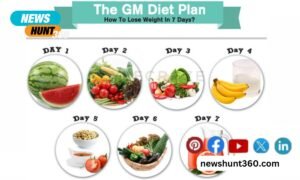Milk has been associated with a healthy diet for centuries. From rural areas to urban households, milk has been present in wholesome diet plans for many people. While Camel Milk is not as prevalent in markets globally when compared to other forms of dairy such as goat or cow milk, it has started its journey of making a mark in the dairy market. One of the primary reasons behind such a development has been the substantial number of claims that have deemed Camel Milk to be an excellent choice in terms of the health benefits that it provides. In spite of limited established research, there have been some major traits of Camel Milk that have come to light in recent times:
- A Nutrient-Rich Option: Camel Milk has a wholesome content of proteins, carbs, as well as unsaturated fats in its composition. 240 ml of Camel Milk is known to yield approximately 10 grams of carbohydrates, 6 grams of fats, and 6 grams of protein. The average caloric count of that amount of Camel Milk comes to 100 calories. With the high carb content, it would essentially have the capacity to provide the human body with a lot of energy to carry out bodily functions and activities. Therefore, for people who are in search of a dairy option that provides them with a balanced macronutrient option, Camel Milk can be a popular choice.
- Heart Friendliness: Heart health is one of the most important aspects to be taken care of while ensuring your overall fitness and life cycle. When cells and tissues of the body are subject to oxidation stress, it might have a severe impact on the human heart. Camel Milk has been praised for having a high number of antioxidants, which would possibly make it a great companion for the heart. Moreover, the fat that is present in Camel Milk is known as unsaturated fat, contrary to the saturated fat present in bovine milk that can cause a rise in thel cholesterol levels in human blood. When compared with cow milk, one of the main concerns that its consumers often have to deal with, is its saturated fat content. Camel Milk, when compared to whole cow milk, has been said to go forward towards countering this issue. Therefore, statements suggest that Camel Milk is a heart-friendly dairy option.
- Pro-Digestive Properties: Milk is not usually associated with easy digestion. The main contributing factor behind this is the presence of lactase in milk. Cow milk contains a high amount of lactase which is not easily accepted by many digestive systems. Even mild to moderate lactose intolerance can cause severe problems such as diarrhea, bloating, or pain. Camel Milk is said to be low on lactase. Therefore, certain allergies would appear to be avoidable by replacing cow milk with Camel Milk. However, this is not an absolute statement, as a person who is suffering from severe lactose intolerance, is not advised to consume Camel Milk or other forms of dairy.
- Camel Milk for Diabetes: Camel Milk has certain proteins present in it that act as an agent which performs functions that are similar to that of insulin. The insulin hormone, which is secreted from the pancreas, is the main agent that helps in breaking down and digesting glucose in the human body. For diabetics, the pancreas often fails to secrete the required amount of insulin. In some cases, diabetics do not have the ability to utilize the insulin that is secreted into the blood. Due to the tenacity of Camel Milk when exposed to acids of the body, it retains the insulin-like proteins, causing a positive effect on glucose breakdown. Therefore, it has gained a lot of popularity and attention among communities for its anti-diabetic properties.
While it is difficult to make an ultimate judgment when it comes to deciding whether Camel Milk is the best health option in dairy, it would not be unwise to say that the various benefits that it offers, tips the scale in its favour. Therefore, while other forms of dairy cannot be entirely discounted from the race, Camel Milk might prove to be a tough player to become the healthiest kind of milk.
One such form of dairy that can give tough competition to Camel Milk is Goat Milk. It is also a powerhouse of ingredients, vitamins and minerals, such as Vitamin A, Omega-3 and 6 fatty acids, Calcium, Potassium, Magnesium, etc. It is said to be one of the most complete foods for human consumption, owing to the proteins present in it, that contains a significant amount of amino acids.
When it comes to the protein profile of Goat Milk, it is said to resemble human milk more than cow milk. Along with this, the beta-lactoglobulin present in Goat Milk is easily digestible, as it is smaller in size as compared to cow milk. In a study conducted by experts, it was found that approximately 40% of the patients who were sensitive towards cow milk were able to tolerate Goat Milk proteins.
The fat content in Goat Milk is said to be ranging between 3% to 6%. It is a concentrated source of energy as it is said to contain 2.5 times more energy than common carbohydrates. It helps in reducing the concentration of LDL cholesterol and triglycerides and helps the body in absorbing the good cholesterol from various types of food. It has been found in various researches that Goat’s Milk has more minerals than human milk and has 13% more Calcium than bovine milk.
Well, when it comes to the healthiest form of milk, all types of milk may not be suitable for you, but there are alternatives out there for you to consume. You can always give either Goat Milk or Camel Milk a shot.




